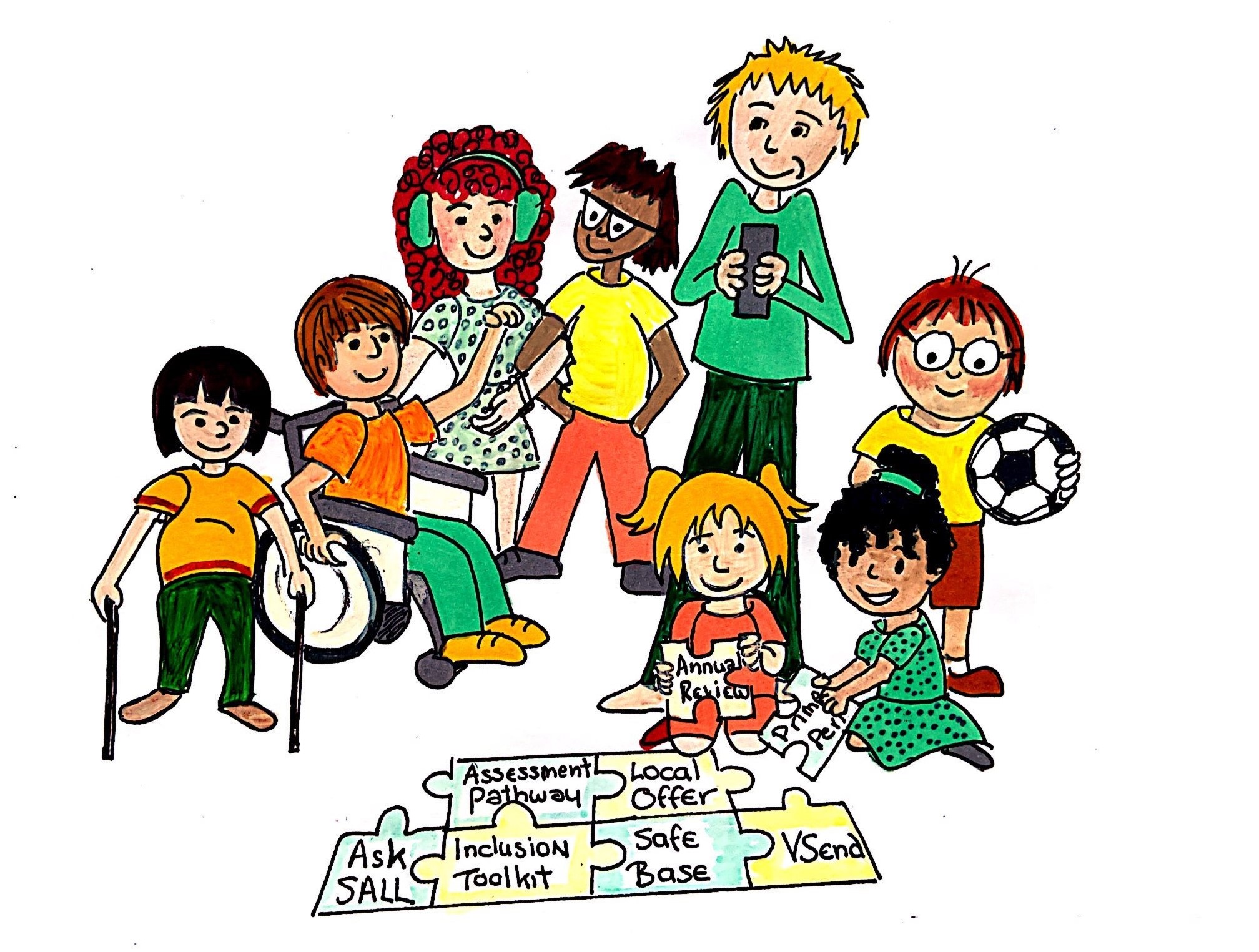Level 5-6 what you may notice
0-5
The child displays significant and persistent difficulties in the acquisition and use of language and development of play and early learning skills. Delayed approximately 12-18 months. As a result, access to many curriculum areas is affected as assessed on the Locke and Beech developmental profile.
- regularly finds it hard to understand, learn and apply new skills
- difficulty in following or predicting a simple daily routine
- poor ability to focus and concentrate. Fleeting attention to activities
- shows no awareness of matching, sorting or categorising
- does not engage in simple pretend play. For example, putting a doll to bed or driving a car
- long-term difficulties in acquiring pre-reading and pre-writing skills
- poor memory skills and difficulty in acquiring knowledge
5-16
The pupil shows significant difficulties with access to the whole curriculum taking into account the age and developmental level of the pupil. The pupil may be working up to 2 years below age related expectations in attainment. The pupil’s needs are met through a combination of approaches following advice from other professionals as appropriate, including small group interventions and 1:1 individualised support in and out of the classroom.
Specific Learning Difficulties. The pupil will show severe and pervasive difficulties with acquiring literacy skills. The pupil may be working 2-3 years or a Key Stage behind age related expectations for attainment. The pupil works on an individual and bespoke curriculum and so has a highly personalised timetable that will include time spent away from the class, working on specific goals as recommended by a dyslexia specialist. The pupil is able to access whole classroom learning with significant scaffolding to ensure that they can experience success. An awareness of the pupil’s overall needs are taken into account.
- persistent difficulties with the acquisition or use of language, literacy and numeracy despite high quality teaching and relevant, focused small group interventions
- significant and persistent difficulties with concept development and logical thought
- displays poor learning habits and concentration difficulties and is often resistant to learning.
- significant difficulties in tasks involving specific abilities such as sequencing, organisation, phonological awareness, concentration or short-term memory and which, in turn, impacts negatively on literacy and mathematics, significantly greater and more persistent than would normally be expected for students of their age
- learning assessments indicate difficulties with pace of delivery, understanding instructions and prioritising or organising work
- identified or suspected memory difficulties
- below average range for attainment, with a standard score of 80 and below or working up to 2 years below age related expected attainment levels
- regular behaviour problems or work avoidance
- may find it difficult to follow lengthy (more than 2-3 step) instructions
- support needed to organise resources or new activities
- difficulties with adaptive behaviour and social skills. For example, can seem immature when compared to peers


